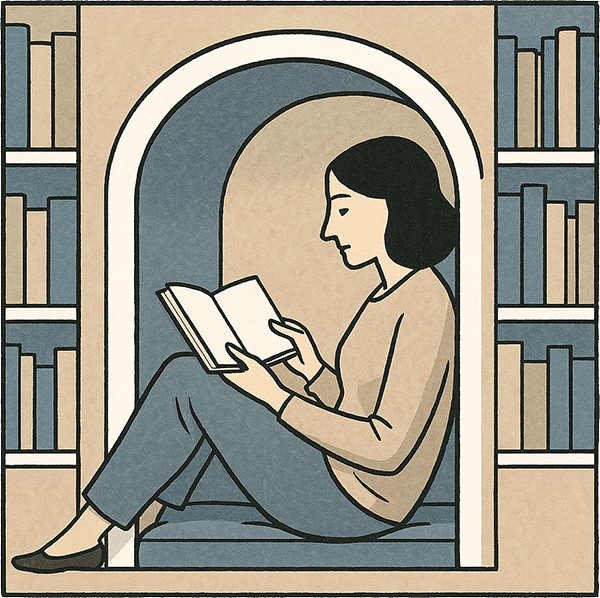Lizzy’s Socialist Economics Lesson
All she wanted was a little extra change to buy new tires for her bike.
Grandma’s recipe for lemonade was simple—-real lemons, sugar, lemon peel and a special ingredient that gave it a thirst-quenching zing, a secret, grandma said, that came from her great-grandparents in Italy.
Lizzy mixed the ingredients, added ice, stirred up a gallon and set up shop on the sidewalk in front of her home. “Lemonade, 25 Cents a glass,” her sign read.
It was the middle of July, and a few sympathetic neighbors stopped by for a glass and to show some neighborly support for the cute little entrepreneur.
“That’s fantastic” smacked one dad who was on his way to work. “I’ll take another!”
“Oooooh,” smiled a college student. “I’ve never had lemonade like that. Can I buy some extra for my water bottle?”
“Delicious!” said Lizzy’s little friends. “How do you make it?”
Lizzy just smiled and put the quarters into an old cigar box, watching the funds grow. She went back to the house three times to mix up additional batches. By day’s end, she had earned $16.75, more than enough for new bike tires.
So successful was her first day’s venture that she decided to try it again the next day. She went to the store with her mom and brought home enough supplies to make eight gallons. She was on her front sidewalk at 10 a.m. that next morning.
By this time word had spread that Lizzy’s ice-cold homemade lemonade was the best ever and it was worth stopping by for a try. Lizzy stayed at her post all that morning and into the hot afternoon. Her mother ran to the store for more supplies as customers came by non-stop right up to dinner time. By day’s end Lizzy had earned $42.50. She was astonished!
That night she sat down in her garage with a few of her friends to make a plan.
“I think we can start a lemonade business,” she announced. With a sheet of lined paper and pencil Lizzy sketched a little logo that read, “Lizzy’s Lemonade,” and her little friend volunteered to color it.
“Will you help me open another lemonade stand?” she asked. “I’ll pay you $1 an hour.”
Her little friends just glowed at the invitation and excitedly volunteered.
That next morning, two little establishments opened for business. “Lizzy’s Lemonade” could be bought in front of her family home and at a second location down on the main road in front of Dan’s Drugs. Dan the druggist didn’t mind letting Lizzy’s friends set up shop in front of his store. It was a pleasant break for customers as they came and went on that hot July day.
By the end of Day 3, Lizzy’s supplies were exhausted but she had made $81.25. Subtracting the money to pay her friends and to buy the supplies, she netted $51.50!
“We can do this all summer!” she told her tired friends that night. They all agreed, and were grateful for the $8 each had earned that day.
At the end of Day 4, the girls counted out $111.50.
“That’s more than a hundred!” they said in amazement. They were glad to get another $8 each for the day’s labors.
“Because you worked so hard, here’s another 25 cents an hour,” Lizzy announced. “A raise!”
The girls’ eyes grew big and they all gasped together. “Twenty-five cents more!” they said in unison. They all skipped to their houses, their money clutched in their little fists, delighted with their labors.
By the end of July, Lizzy’s Lemonade could be bought at 6 locations. Little friends manned the cardboard storefront at each stand, pouring out glass after glass until they ran dry. Each evening they carried their supplies in little red wagons back to Lizzy’s house where they congregated in her garage to receive their pay and head for home. It was a great summer job, it was a great summer business, it was a great service to the neighbors living all around Lizzy’s home.
And then came the adults.
First it was the local newspaper. He interviewed Lizzy and took pictures of the little girls busily exchanging paper cups brimming for all those shiny quarters.
The article caught the attention of a city official who stopped his car on his way to work and asked, “Do you girls have a license to sell lemonade?” The little friends looked at each other and shrugged. “I better talk to your parents.”
The one-time fee was $125, and the girls had to get a food handler’s permit for $20 each.
The application passed the desks of several others. Soon Lizzy was informed of other demands—self-employment taxes, employment taxes, gross receipts taxes, sales taxes, franchise taxes, and business income taxes. She needed a tax ID, a business license and liability insurance. The health inspector wanted to know what grandma’s “special ingredient” was, and an investigation was launched. Before the week’s end, all the adults were engaged in phone calls and letters and forms and meetings.
But the worst of all was when Lizzy’s little friend Hillary showed up one morning with her dad.
“You’re only paying these girls $1.25 an hour?” he asked.
“Yes, that’s what we agreed on,” Lizzy said.
“Little girl,” he said, “you’re making a lot of money and you’re not sharing with your friends.”
“But that’s what we agreed to,” Lizzy said. “And they like it. They enjoy the money they make.”
“It’s not fair,” the father said. “You’re making all of this profit off the their hard labor, and they work just as hard as you.”
“But it’s my lemonade stand,” Lizzy said, tears welling up in her eyes.
“You’re being selfish,” he said, “and I think you should do something about that. I want to speak to your father.”
That evening the girls met in Lizzy’s garage, as usual. As the money was counted out and each was paid their usual wage, Hillary spoke up.
“Lizzy, my dad says you’re not paying us enough. I think he’s right.”
Lizzy looked at her dumbfounded. “But you agreed. You said $1 an hour was okay. And I gave you a raise to $1.25 to show my appreciation.”
And then Megan piped up. “I’ve helped you earn more than $1,400 so far this summer and you’ve paid me only $110. You get all the money.”
“But it’s my lemonade stand,” Lizzy repeated. “I buy all the supplies and I do all the work to help it grow.”
“It’s not fair,” the girls said in unison. “If we don’t get $3 an hour we’re quitting.”
“But you agreed,” Lizzy said, following after her friends as they boldly walked out of the garage. “There’s not enough profit to pay $3, that’s more than what we can sell.”
“We’re on strike for more money,” they said, and disappeared into the darkness.
Lizzy sat down at her place in the empty garage and opened the cigar box. More than half of that money would go to supplies, expenses, taxes, fees and to pay back her dad for insurance and her mom for gas money. In all, she had only $30 for herself.
The next day when the girls arrived to begin another day selling, Lizzy was all ready. She had gallons of lemonade stirred up with ice in coolers, one for each lemonade stand.
“Are you going to give us a raise?” the girls asked.
“But you promised,” Lizzy said.
The girls gave her a dirty look, turned their backs and stormed away in a huff.
All that morning Lizzy tried to recruit others to help but word had spread to all her neighborhood friends. Nobody wanted to come make $1.25 an hour selling Lizzy’s Lemonade.
That day only one lemonade stand was open—the one in front of Lizzy’s house. And even though business was brisk, Lizzy was exhausted running things all by herself.
She talked to her dad that night.
“When people get greedy,” her father explained, “they turn on their providers and work hard to compel them. They’ll continue that pressure until the providers bend to their will.”
“That’s what they did to me today,” Lizzy said, trying not to sob.
“That’s the real world, Lizzy,” her father said. “That’s what big government and excessive taxes do, that’s what unions do, that’s what everyone does to make money off of your hard work, without working hard for it themselves. If you’re tired of trying to give all of our neighbors the best lemonade they’ve ever tasted, and having others take away all the reward for doing all that work, then I’ll support you if you want to close down shop.”
Lizzy looked at the floor. She thought of her happy idea, the pretty logo sign, the excitement of her friends to help, the smiles on her customer’s faces, the long hours she put in preparing for the next day while her little girlfriends were out playing, and how she used her precious quarters to make the town politicians and the insurance company happy. And then, that dark day when Hillary’s dad came along and demanded more money for his daughter, and how her friends changed and turned so mean all of the sudden. They wouldn’t even play with her anymore. She shook her head and decided it just wasn’t worth it.
“Dad,” she said, “I don’t like the way people changed just because my customers liked my lemonade. I think I’ll shut down Lizzy’s Lemonade and maybe try it some other time.”
Her dad smiled and gave her a hug. “It wasn’t always this way,” he said. “When I was little we were a lot more free and people were a lot less greedy. Some day, things will change, and Lizzy’s Lemonade can start up again.”
Lizzy smiled. What a great day that would be, she thought.
She looked up at her father and his kind face. “Want a glass of lemonade, dad? I know this place…”
He smiled and together they walked hand in hand to the garage for the last remaining ice-cold cooler of Lizzy’s Lemonade.
Paul B. Skousen is the author of The Naked Socialist Series which defines socialism and socialist economics.




